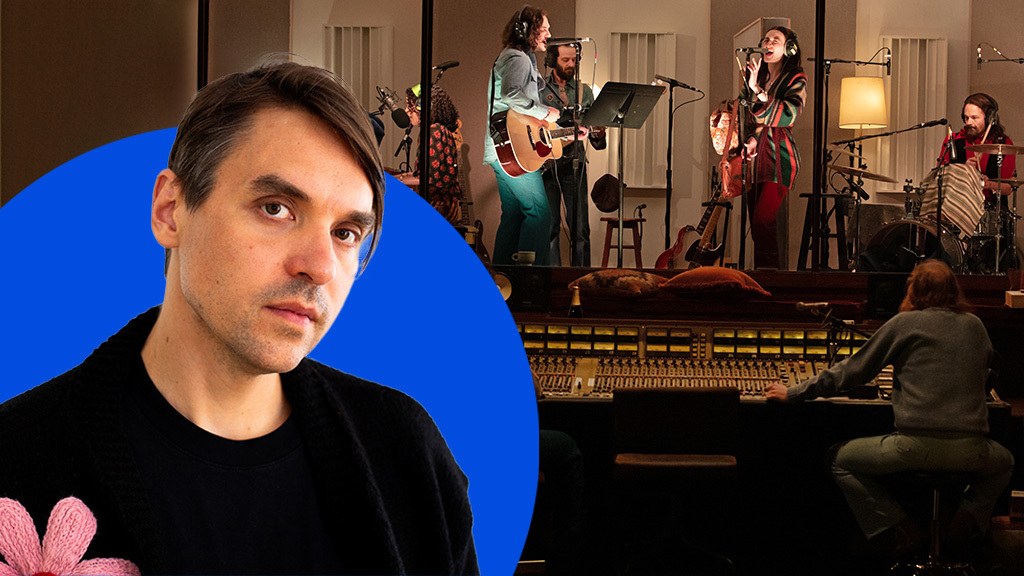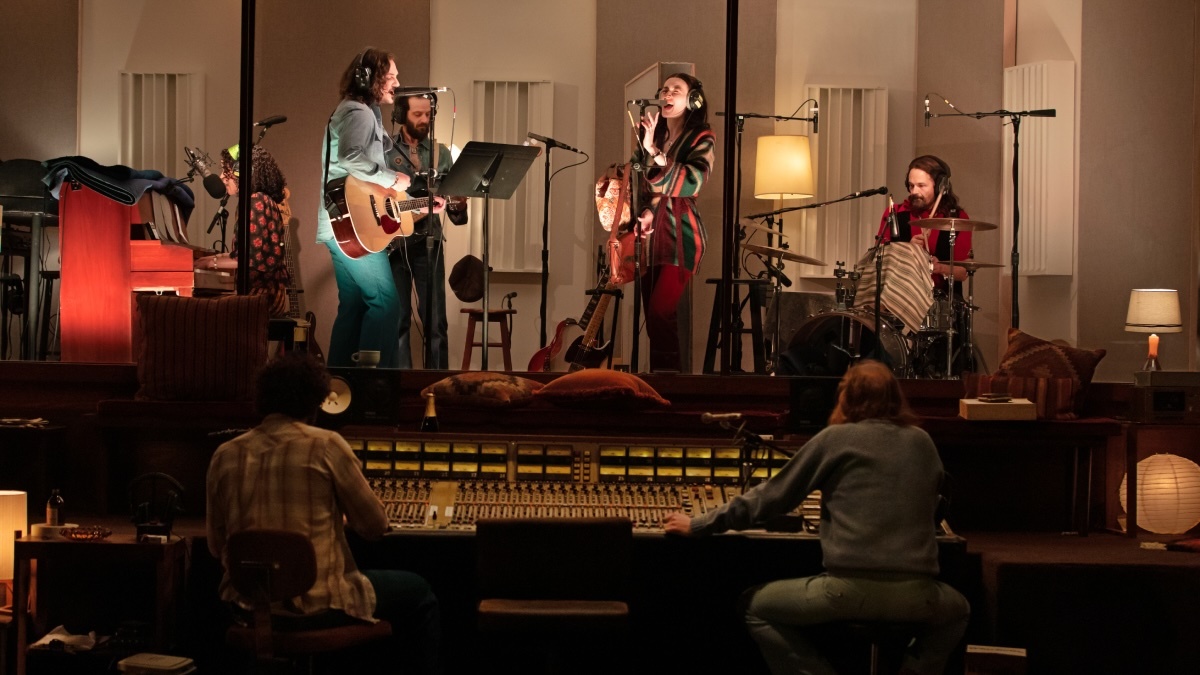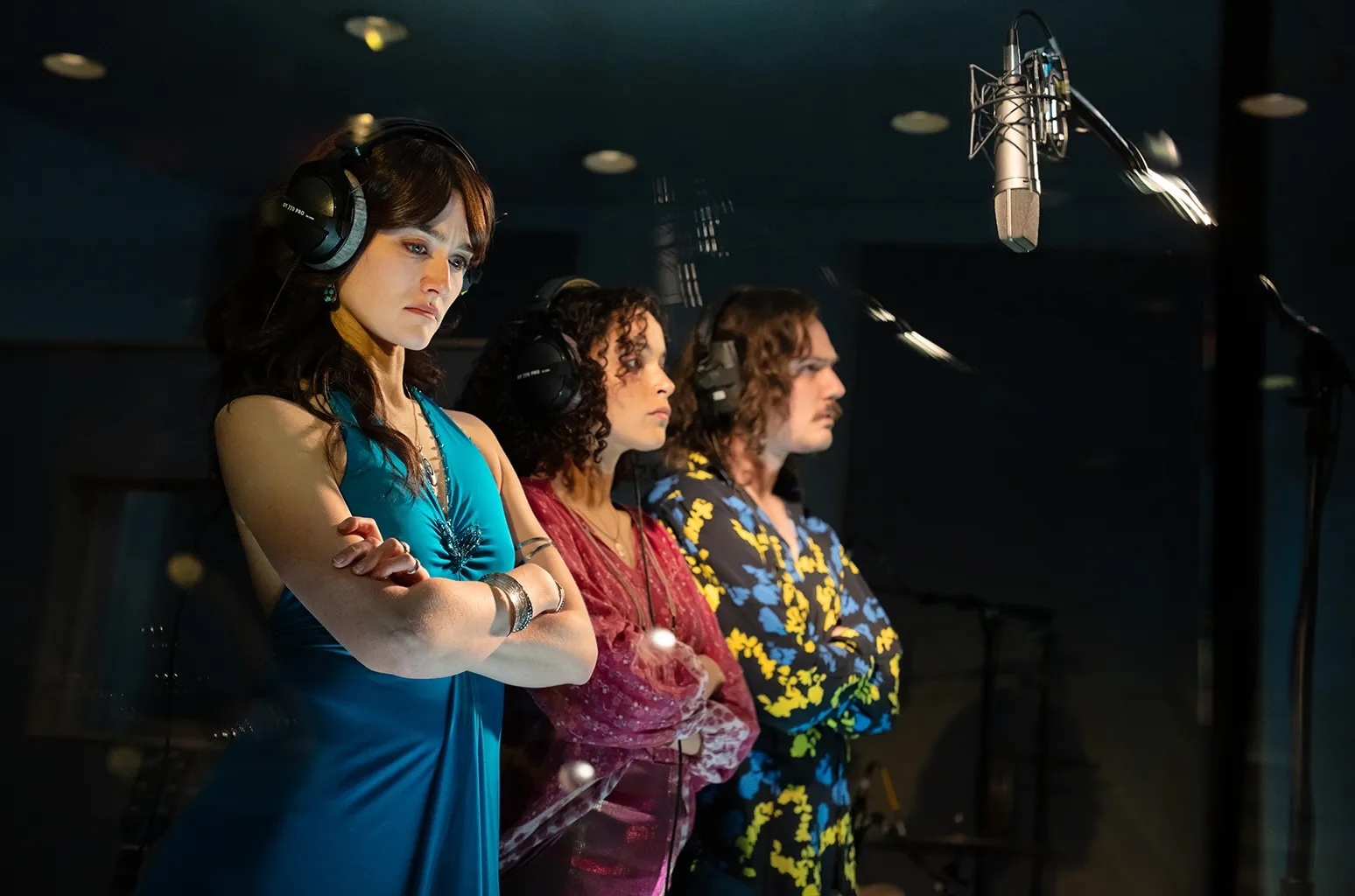
Broadway was never part of Will Butler’s plan. He achieved massive musical success with both indie rock giants Arcade Fire and, more recently, in his solo music career. Butler, now 41, had not done anything related to theater since his high school years in New Hampshire before 2014 rolled around.
But in 2014, as Butler was relocating to New York, he met the playwright David Adjimi through a friend. Butler says it was more of a “connection” with Adjimi than a meeting. Fast-forward a decade, and that “connection” has transcended into Stereophonic, the most Tony-nominated play of all time.
“We met for lunch and he hadn’t written the play yet, but he was describing that it would physically be in a studio and the music would be fragmented. It made total sense to me. I just trusted him,” Butler, who composed the music for the play, tells Ticketmaster. “It totally was not a Broadway project at the time—it was a cool, weird little thought experiment. I was like, ‘Oh, I like this thought experiment, I’m in!’ I was in for the next 10 years.”
Stereophonic is an in-depth look at a five-piece band recording an album in a studio—and that includes the good, bad and ugly that goes along with the long and grueling experience of making a record. The production covers it all, from the tensions that arise between band members, the relationship between a band and studio engineers, and the magic of building a song’s verses and chorus.

The world of writing music and making records is something Butler is acutely aware of. His old band Arcade Fire, which he departed at the end of 2021, won the Grammy for Album of the Year for their third record, The Suburbs, in 2010.
Butler describes Stereophonic as “extremely accurate. No—horrifyingly accurate” when it comes to capturing the atmosphere of being in a studio for album recording sessions.
“I’ve had musician friends who have gone into [the play] and I’ve been like, ‘What did you think of the play?’ And they’re like, ‘I did not experience that as a play. Why did you do that to me?’ The dynamics are really spot on,” Butler says. “The language is really spot on. The technical aspects are really spot on.
“There’s even two or three moments where people are talking with technical language and the technical language is slightly off in a way that’s actually completely accurate to how you’re talking about a record when you’re a year into the process, where you are referring to the chorus all the time, but it was the chorus six months ago and now it’s verse two, but you’re still calling it the chorus.”
As far as writing music for a nonfictional band vs. writing music for a fictional one, Butler says, “You’re kind of writing a song for a character or with a character, but also for David and with David. Those were the two dynamics that just kept circling around and around.”
The almost documentary-like POV the audience has when seeing the play is part of the magic of Stereophonic. Butler doesn’t chalk that up to music he composed for the show, but rather the vision of Adjimi and director Daniel Aukin. That vision, and the experience of watching the band record, has been compared to the real life band Fleetwood Mac who, like the fictional band, consisted of two couples—one from England, and one from America.

Despite the obvious Fleetwood Mac comparisons, Butler sees plenty of other influences in Stereophonic as well.
“I instantly recognize [Fleetwood Mac] as a touchpoint, but… there’s like a lot of the making of [Bruce Springsteen’s] ‘Born to Run’ in there,” he says. “There’s a lot of the D. A. Pennebaker’s Company documentary. There’s a lot of touchstones there.”
Butler also calls out how special the more recent The Beatles: Get Back documentary is, though the play was already done by Get Back’s 2021 release. “It was nice for me to watch it and be like, ‘Oh, yeah, this is very much like our play. It feels very real. They’re like hanging out.’”
Though work on the play took a decade, the last 12 months specifically have been a whirlwind for Stereophonic. It premiered Off-Broadway at Playwrights Horizons in October 2023 and closed Off-Broadway on December 17. In that short time, it appeared on multiple other year-end best lists.
Then, upon transferring to Broadway and opening at the John Golden Theatre on April 19 of this year, Stereophonic earned 12 nominations and won five of them at the most recent Tony Awards (Butler picked up two noms, for Best Original Score and Best Orchestrations). The New York Times’ former Broadway critic Ben Brantley referred to it as “The best new American play I’ve seen in I-don’t-know-how-long.” The production has been extended to run until January 5, 2025.
Butler, who has a self-described “high bar” for art, has not been surprised at the critical acclaim and success around Stereophonic after working on the ins and outs of it for the past 10 years.
“I don’t like that many things in this world. There aren’t that many records that I listen to and I’m like, ‘I really like this.’ There’s not that many movies where I’m like, ‘This is really good.’ The bar is very high. You just feel it when you watch something or you read something that’s really extraordinary,” he says. “The script did that for me. The workshops did that for me. I knew it was extraordinary.”
Tags
You Might Like
Arts & Theatre
Mamma Mia’s Jalynn Steele Shares the Playlist That ’’Gets Her Hyped’’
Mamma Mia!, how can we resist you? For the first time in a decade, the popular jukebox musical set to the music of ABBA is back on Broadway, returning to its...
Arts & Theatre
Spotlight on September: Must-See Broadway Shows This Month
September always marks new beginnings, with the arrival of fall, the start of the school year and a new chapter on Broadway after the rush of the summer. Thi...
Arts & Theatre
7 Broadway Shows to See This Fall in NYC
Ask any native New Yorker and they’ll tell you: Fall is the perfect time of year in the Big Apple. The leaves changing in Central park, the weather cooling f...

